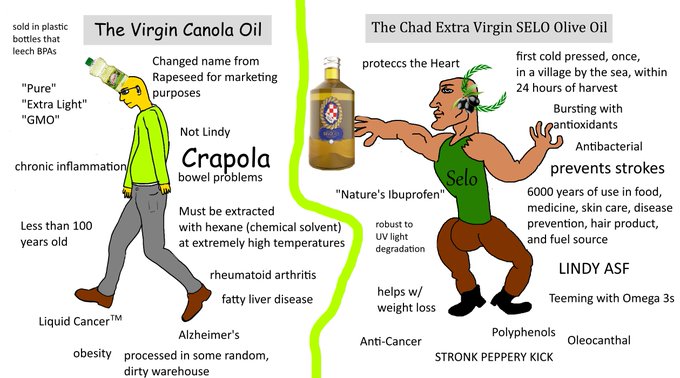In the past 70 years, Industrial Vegetable & Seed Oils have been produced in greater quantities than they ever have been in human history, even when adjusting for changes in manufacturing capacity. This is a phenomenon that must be viewed with a great deal of suspicion.
The truth is, vegetable and seed oils, such as corn, soybean, canola, peanut, and more may cause heart disease, cancer, liver damage, and too many more ailments to list here.
So why is their production and consumption being pushed so heavily by Globalist institutions, such as Monsanto, and the American Heart Association?
Grain and seed oil consumption has increased dramatically worldwide since about 1970, a period which coincidentally also marks a tectonic shift in the world’s economic policies as they pertain to capital accumulation (policies that disproportionately benefit the elite).
In the 1970s, fiscal and monetary policy changed markedly to benefit returns to capital accumulation at the expense of labor.
The theory goes that if monopolies could freed of competition, that consumer goods would get cheaper because of scale effects, and that on net consumers would benefit more than they would have otherwise had corporations not been so centralized and powerful.
This is the now-thoroughly debunked “Trickle Down” economics of the era of Ronald Reagan and Margaret Thatcher.
What happens in the real world—you know, the one outside of myopic first-year college economics textbooks—is that, in the presence of capital efficiency, everything that really matters to people most becomes unattainably expensive.
It’s in the long run interest of capital to keep consumers weak and dependent, just so long as they don’t die too quickly:
Just look around you. Why do supposedly “heart healthy” food products as such beef jerky, dark chocolate, and protein bars have Soy in them?
If capital were truly interested in creating healthy, long-term customers for their goods, instead of encouraging hedonism through predatory marketing and rewarding your dopamine receptors above all else, there would simply be no reason for this abject chicanery.
The global push for an expansion of seed and vegetable oils is part and parcel of Deep State policy to hollow out the middle class and sow discord among the masses by making everyone except for the wealthiest citizens docile and weak. This way the increasingly immiserated working class can be controlled like virtual chattel slaves.
This isn’t a wishful conspiracy theory. There are corollaries for this kind of food-driven population control all throughout history, as far back as Imperial Rome.
Wake up!
One thing you can do to protect yourself against these meddling elite vampires is to exclusively use fruit oils for cooking, garnishing and everyday drinking (I do one 1 oz shot of Selo Oils every morning and another just before bed).
Fruit oils must be cold pressed at low temperatures in order to prevent their proteins from becoming denatured, so you can be assured that if they make it to the supermarket shelf, they’re mostly healthy for you (though there are still many things to watch out for).
On the other hand, seed oil production depends on the use of chemical solvents such as hexane, in order to extract them at all. Much of this hexane, which is a a cousin chemical to benzene (a byproduct of natural gas, crude oil, and coal processing), actually makes it into the oil itself.
In fact, seed oils did not exist until about 100 years ago, because you can’t extract oil from them without these specialized chemical solvents.
After I discovered this myself—after I really started getting interested in fruit oils after my first olive oil harvest two years ago—I vowed to never use seed oils ever again.
That being said, the best fruit oils are olive oil, avocado oil, or coconut oil, especially when first cold pressed.
Just make you sure get your fruit oils from a source that you trust, preferably from a farm that you have personally visited, or from my family farm in Croatia.

If you LOVE real extra virgin olive oil as much as I do, consider purchasing some of my own hand-picked, first cold pressed, extra virgin liquid gold, direct from my family farm in Croatia.
[optin-cat id=342]

1 comment